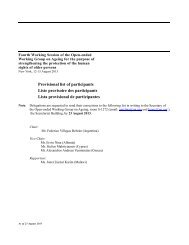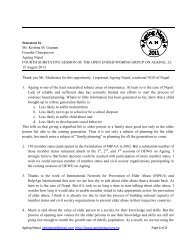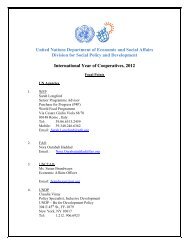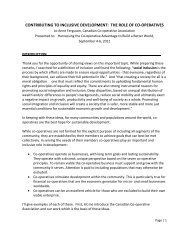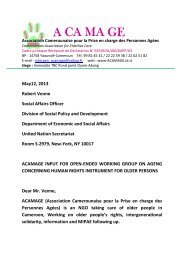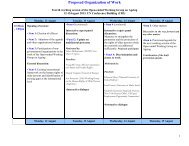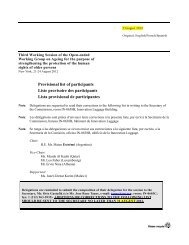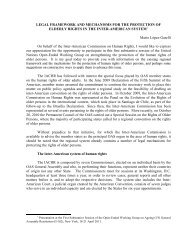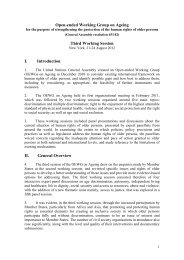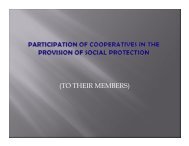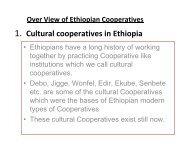Audit of Residential Facilities, Final report - Division for Social Policy ...
Audit of Residential Facilities, Final report - Division for Social Policy ...
Audit of Residential Facilities, Final report - Division for Social Policy ...
Create successful ePaper yourself
Turn your PDF publications into a flip-book with our unique Google optimized e-Paper software.
under normal circumstances would be very unlikely that everyone would say the samething.CHAPTER 2OVERALL CONTEXT OF OLDER PERSONS2.1 IntroductionThis chapter outlines the overall context <strong>of</strong> older persons highlighting some international trendswith regard to ageing. It also provides a brief overview <strong>of</strong> ageing in South Africa addressingmainly the demographic trends as well as the legislative context that should provide the enablingenvironment <strong>for</strong> older persons.2.2 Defining AgedAt the moment, there is no United Nations standard numerical criterion, but the UN agreed cut <strong>of</strong>fis 60+ years to refer to the older population. Realistically, if a definition in Africa is to bedeveloped, it should be either 50 or 55 years <strong>of</strong> age, but even this is somewhat arbitrary andintroduces additional problems <strong>of</strong> data comparability across nations. The more traditional Africandefinitions <strong>of</strong> an elder or 'elderly' person correlate with the chronological ages <strong>of</strong> 50 to 65 years,depending on the setting, the region and the country. Lacking an accepted and acceptabledefinition, in many instances the age at which a person became eligible <strong>for</strong> statutory andoccupational retirement pensions has become the default definition. The ages <strong>of</strong> 60 and 65 yearsare <strong>of</strong>ten used, despite its arbitrary nature, <strong>for</strong> which the origins and surrounding debates can befollowed from the end <strong>of</strong> the 1800's through the mid 1900's. (Thane, 1978 & 1989; Roebuck1979)2.3 The World’s ageing PopulationPopulation ageing refers to a rising share <strong>of</strong> older people living in our societies and this will beaccompanied by a shrinking population overall. This phenomenon is mostly prevalent in Europe.A European comparative analysis shows that the challenge and extent <strong>of</strong> the population ageingis different <strong>for</strong> each country even within the European region. Spain, <strong>for</strong> example is absorbing amuch quicker rise in the share <strong>of</strong> older people than most <strong>of</strong> the other European countries such asGreat Britain. Table 1 shows figures on ageing in the world‟s regions and in a few specificcountries.20 | D S D A u d i t o f R e s i d e n t i a l F a c i l i t i e s



